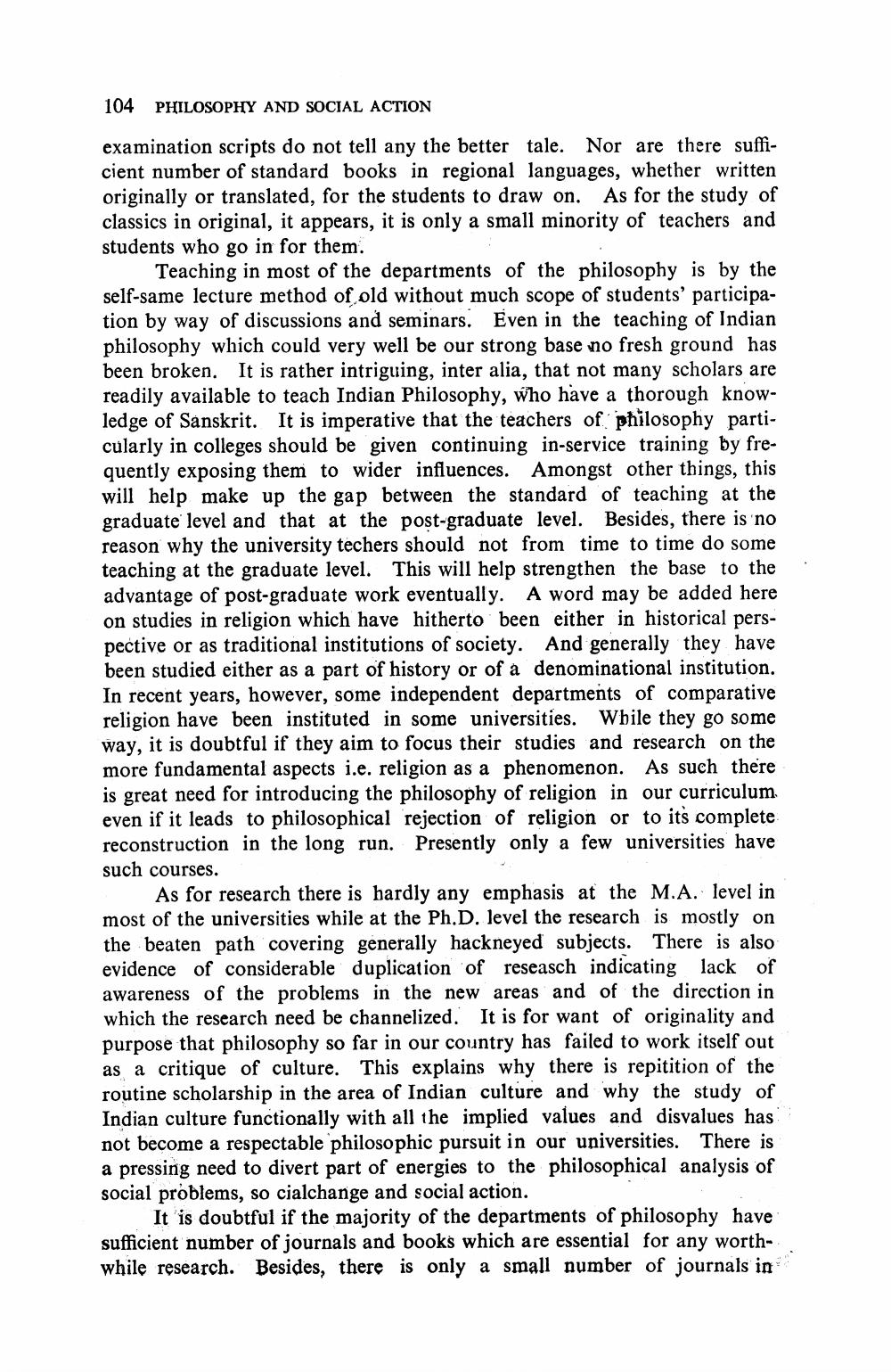Book Title: Philosophical Studies In India Author(s): Premnath Publisher: Premnath View full book textPage 2
________________ 104 PHILOSOPHY AND SOCIAL ACTION examination scripts do not tell any the better tale. Nor are there sufficient number of standard books in regional languages, whether written originally or translated, for the students to draw on. As for the study of classics in original, it appears, it is only a small minority of teachers and students who go in for them. Teaching in most of the departments of the philosophy is by the self-same lecture method of old without much scope of students' participation by way of discussions and seminars. Even in the teaching of Indian philosophy which could very well be our strong base no fresh ground has been broken. It is rather intriguing, inter alia, that not many scholars are readily available to teach Indian Philosophy, who have a thorough knowledge of Sanskrit. It is imperative that the teachers of philosophy particularly in colleges should be given continuing in-service training by frequently exposing them to wider influences. Amongst other things, this will help make up the gap between the standard of teaching at the graduate level and that at the post-graduate level. Besides, there is no reason why the university techers should not from time to time do some teaching at the graduate level. This will help strengthen the base to the advantage of post-graduate work eventually. A word may be added here on studies in religion which have hitherto been either in historical perspective or as traditional institutions of society. And generally they have been studied either as a part of history or of a denominational institution. In recent years, however, some independent departments of comparative religion have been instituted in some universities. While they go some way, it is doubtful if they aim to focus their studies and research on the more fundamental aspects i.e. religion as a phenomenon. As such there is great need for introducing the philosophy of religion in our curriculum even if it leads to philosophical rejection of religion or to its complete reconstruction in the long run. Presently only a few universities have such courses. As for research there is hardly any emphasis at the M.A. level in most of the universities while at the Ph.D. level the research is mostly on the beaten path covering generally hackneyed subjects. There is also evidence of considerable duplication of reseasch indicating lack of awareness of the problems in the new areas and of the direction in which the research need be channelized. It is for want of originality and purpose that philosophy so far in our country has failed to work itself out as a critique of culture. This explains why there is repitition of the routine scholarship in the area of Indian culture and why the study of Indian culture functionally with all the implied values and disvalues has not become a respectable philosophic pursuit in our universities. There is a pressing need to divert part of energies to the philosophical analysis of social problems, so cialchange and social action. It is doubtful if the majority of the departments of philosophy have sufficient number of journals and books which are essential for any worthwhile research. Besides, there is only a small number of journals inPage Navigation
1 2 3 4
